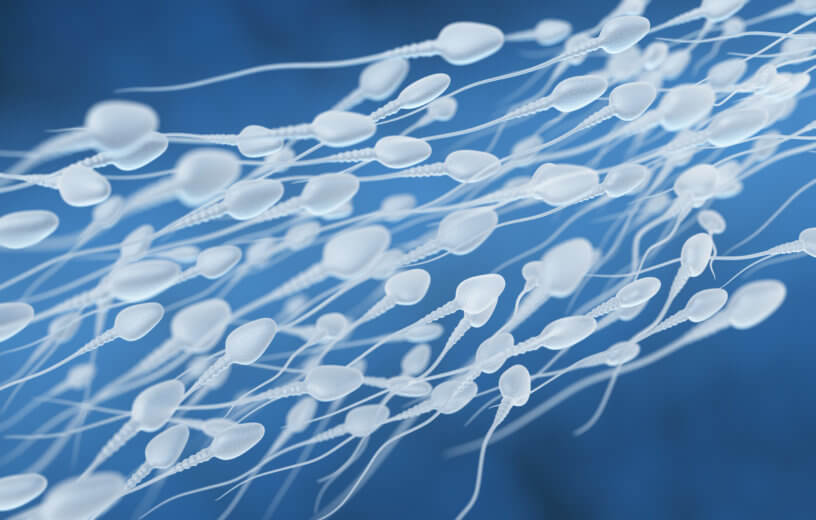BALTIMORE — Feeling anxious or afraid for long stretches as a result of major stressors, such as the coronavirus pandemic, may seriously impact a man’s sperm composition, affecting his future offspring. Researchers at the University of Maryland School of Medicine say a recent study shows a biological mechanism resulting from stress can alter sperm and impact the brain development of a child while still in the womb.
The researchers found that the effects of paternal stress could be transferred to offspring via changes in the extracellular vesicles that interact with maturing sperm. Extracellular vesicles are tiny particles that transport proteins, lipids, and nucleic acids between cells in the sperms’ membranes.
“There are so many reasons that reducing stress is beneficial especially now when our stress levels are chronically elevated and will remain so for the next few months,” explains study author Dr. Tracy Bale, a professor of pharmacology and director of the Center for Epigenetic Research in Child Health & Brain Development at the medical school, in a media release. “Properly managing stress can not only improve mental health and other stress-related ailments, but it can also help reduce the potential lasting impact on the reproductive system that could impact future generations.”
Dr. Bale’s team studied vesicles of mice after treatment with the human stress hormone corticosterone. The rodents’ extracellular vesicles showed dramatic changes in their size, as well as protein and small RNA content.
They found that when sperm incubate with previously stressed extracellular vesicles before fertilizing an egg, the mouse pups showed changes in patterns of early brain development, leading to widely different responses to stress when they reach maturity.
The researchers then recruited students from the University of Pennsylvania to donate sperm each month for six months. The students also completed questionnaires about their stress levels in the preceding month. Researchers found that students who had elevated stress levels in months prior had significant changes in the small RNA content of their sperm. Those who had no changes in stress levels saw little or no change.
“Our study shows that the baby’s brain develops differently if the father experienced a chronic period of stress before conception, but we still do not know the implications of these differences,” said Dr. Bale. “Could this prolonged higher level of stress raise the risk for mental health issues in future offspring, or could experiencing stress and managing it well help to promote stress resilience? We don’t really know at this point, but our data highlight why further studies are necessary.”
Dr. Bale was able to conclude that stress-induced changes in male reproductive organs take place a month or more after the stress dissipates and life resumes its normal routines. She says that the body’s adaption to stress involves returning to a new baseline, which she calls a post-stress physiological state, or allostasis.
Although the study didn’t identify which stress relief techniques work best for protecting one’s sperm, the research team points to tips from the Centers for Disease Control and Prevention’s “stress and coping” page:
- Take breaks from watching, reading, or listening to news stories, including social media. Hearing about the pandemic repeatedly can be upsetting.
- Take care of your body. Take deep breaths, stretch, or meditate. Try to eat healthy, well-balanced meals, exercise regularly, get plenty of sleep, and avoid alcohol and drugs.
- Make time to unwind. Try to do some other activities you enjoy.
- Connect with others. Talk with people you trust about your concerns and how you are feeling.
The study was published in the journal Nature Communications.
